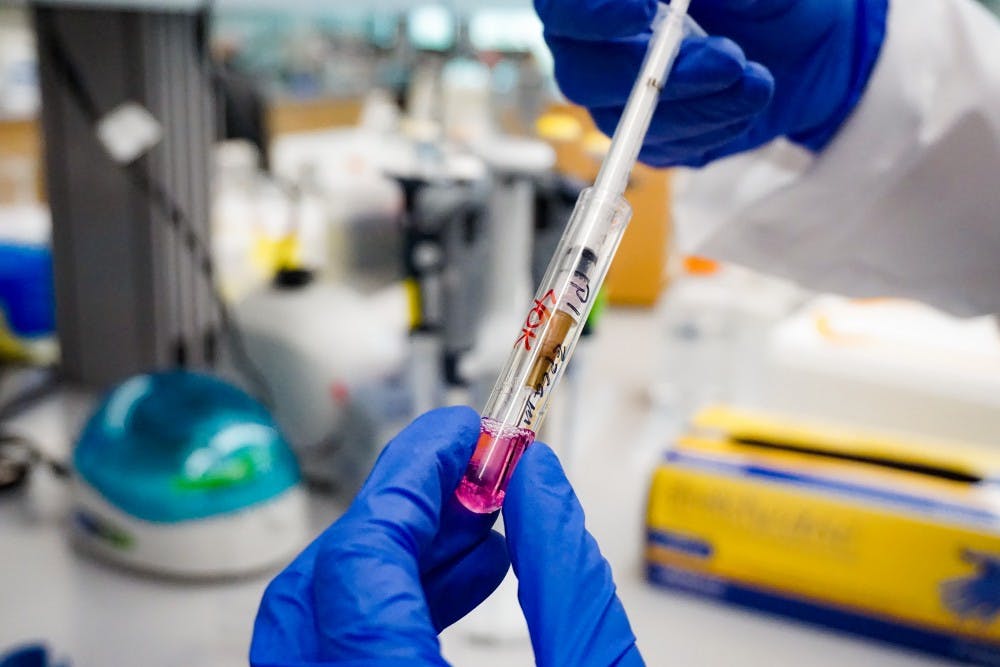Penn Medicine researchers have found the first empirical evidence that consuming alcohol contributes to the epigenetic regulation of alcohol cravings, Penn Medicine News reported. This finding is useful for potential treatment of alcohol abuse disorders.
The study found that acetate, a product of alcohol breakdown in the liver, travels up to the brain's learning centers to affect how mouse models respond to alcohol in the environment. Acetate modifies proteins that regulate DNA function, causing changes in how certain genes are expressed and in how mice respond to environmental cues to consume alcohol. The study was published yesterday in Nature and co-led by postdoctoral researcher Gabor Egervari and 2009 College graduate and 2016 Biology Ph.D. graduate Philipp Mews.
The researchers identified a specific enzyme, ACSS2, through which acetate deposits acetyl groups onto DNA-packaging proteins called histones. ACSS2, which has previously been found to be necessary for forming spatial memories, leads to the activation of genes involved in learning and memory which can have an impact on behavior.
The study also found that mice with normal ACSS2 activity could be trained to prefer a chamber where they previously received alcohol-paired rewards, while those with reduced ACSS2 did not learn to favor the alcohol-associated environment. These findings have the potential to lead to treatments for alcohol abuse disorders. According to the National Institute on Drug Abuse, about 40 to 60 percent of recovering alcoholics will experience relapse, and many relapses are triggered by environmental cues such as walking by a bar well-frequented in the past. These relapses could potentially be combated by reducing ACSS2 activity to decrease responsiveness to alcohol associations in the environment.
“Our molecular and behavioral data, when taken together, establish ACSS2 as a possible intervention target in alcohol use disorder — in which memory of alcohol-associated environmental cues is a primary driver of craving and relapse even after protracted periods of abstinence,” Egervari told Penn Medicine News.
This is not the only Penn study to address the genetic basis of alcohol consumption: a 2018 paper found genes that promote alcohol dependence are evolving to make alcohol consumption less pleasant.









